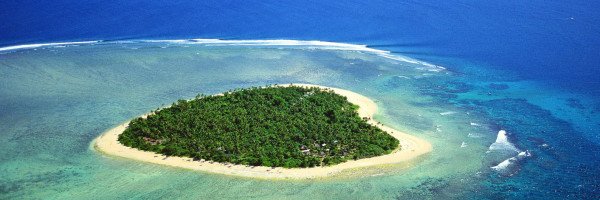Understanding the Climate Change Crisis in Fiji
Fiji, a stunning archipelago in the South Pacific, is renowned for its beautiful landscapes, rich biodiversity, and vibrant culture. However, the Fiji Islands overview reveals a troubling reality as climate change poses significant threats to this idyllic paradise. Rising sea levels, increased frequency of extreme weather events, and changing precipitation patterns are among the most pressing challenges facing the islands. The impacts of these changes are felt across various sectors, including agriculture, tourism, and the livelihoods of local communities.
Fiji’s geographic location makes it particularly vulnerable to climate-related disasters. The islands experience devastating cyclones, which have become more intense due to climate change. For instance, Cyclone Winston in 2016 was one of the strongest storms ever recorded in the Southern Hemisphere, causing widespread destruction and loss of life. As global temperatures continue to rise, the frequency and severity of such events are expected to escalate, putting immense pressure on Fiji’s infrastructure and natural resources.
Understanding the multifaceted challenges of climate change is crucial for developing effective solutions. While the Fijian government is actively engaging in resilience-building initiatives, international support, particularly from neighboring countries like New Zealand, will be vital in addressing the ongoing crisis.
Impacts on Agriculture and Food Security
Climate change is significantly impacting agriculture in Fiji, threatening food security and the livelihoods of many families. The Fiji Islands overview emphasizes the importance of agriculture in the local economy, with a large portion of the population relying on subsistence farming. Changing weather patterns, including prolonged droughts and heavy rainfall, can lead to crop failures and reduced yields.
One notable challenge is the increased salinity of agricultural lands due to rising sea levels and saltwater intrusion. This affects the growth of staple crops like taro and cassava, which are vital for food security. Additionally, pest and disease outbreaks are becoming more frequent as warmer temperatures create favorable conditions for their proliferation.
New Zealand can play a crucial role in supporting Fiji’s agricultural resilience. By sharing knowledge, technology, and resources, New Zealand can help Fijian farmers adopt climate-smart agricultural practices. Initiatives such as developing drought-resistant crop varieties or providing training on sustainable land management can enhance food security and agricultural productivity in Fiji.
The Threat to Biodiversity and Ecosystems
Fiji’s rich biodiversity is one of its greatest assets, attracting tourists and providing vital ecosystem services. However, climate change threatens these ecosystems, leading to habitat loss and reduced species diversity. The Fiji Islands overview highlights the unique marine and terrestrial ecosystems that are at risk, including coral reefs, mangroves, and native forests.
Coral reefs, which are vital for marine biodiversity and coastal protection, face bleaching events due to rising sea temperatures. Additionally, ocean acidification poses a significant threat to marine life, affecting fish populations and the livelihoods of local fishermen. Similarly, terrestrial ecosystems are under pressure from changing rainfall patterns and increasing temperatures that threaten native species.
New Zealand can assist Fiji in biodiversity conservation efforts by providing expertise in ecosystem management and restoration. Collaborative projects focused on reef rehabilitation, reforestation, and sustainable coastal management can help protect Fiji’s natural heritage while fostering resilience against climate change.
Impact on Tourism and Economic Stability
Tourism is a vital sector for Fiji’s economy, providing jobs and income for many residents. However, climate change poses significant risks to the tourism industry, as extreme weather events and environmental degradation can deter visitors. The Fiji Islands overview illustrates how the country’s pristine beaches and natural attractions are at risk from climate-related impacts.
For example, rising sea levels threaten coastal resorts and infrastructure, while coral bleaching events can diminish the appeal of snorkeling and diving activities. Additionally, unpredictable weather patterns can lead to a decline in visitor numbers, affecting local businesses that rely on tourism.
New Zealand’s role in supporting sustainable tourism practices in Fiji can be instrumental in mitigating these impacts. By promoting eco-friendly tourism initiatives and resilience planning, New Zealand can help Fiji diversify its tourism offerings and attract visitors year-round, even during adverse weather conditions.
Community Resilience and Adaptation Strategies
The communities of Fiji are on the front lines of climate change, facing numerous challenges that threaten their way of life. The Fiji Islands overview highlights the importance of community engagement in resilience-building efforts. Local knowledge and practices play a crucial role in developing effective adaptation strategies.
Community resilience can be strengthened through education and training programs that raise awareness about climate change and its impacts. Initiatives that promote sustainable practices, such as rainwater harvesting, renewable energy use, and sustainable fishing, can empower communities to adapt to changing environmental conditions.
New Zealand can support these efforts by providing resources, funding, and expertise in community development. Collaborating with local organizations and governments to implement community-driven projects can foster a sense of ownership and resilience among the people of Fiji, ensuring that they are better equipped to face the challenges of climate change.
International Cooperation and Policy Frameworks
Addressing climate change in Fiji requires a coordinated approach involving local, national, and international stakeholders. The Fiji Islands overview emphasizes the need for strong policy frameworks that support climate adaptation and mitigation efforts. Fiji has been proactive in engaging with international organizations and participating in global climate agreements, but further support is needed to implement effective policies.
New Zealand’s involvement in international climate initiatives can provide crucial support for Fiji’s efforts. By advocating for increased funding and resources for vulnerable countries, New Zealand can help Fiji access the financial assistance needed to implement climate resilience projects. Additionally, participating in knowledge-sharing platforms can facilitate the exchange of best practices and innovative solutions among countries facing similar challenges.
Collaboration between Fiji and New Zealand can also strengthen regional partnerships aimed at tackling climate change, ensuring that both countries benefit from shared knowledge and resources.
Future Directions: Building a Sustainable Partnership
As Fiji continues to grapple with the impacts of climate change, building a sustainable partnership with New Zealand can provide a pathway toward resilience and adaptation. The Fiji Islands overview reflects the potential for collaboration in various sectors, including agriculture, tourism, and community development.
Future initiatives could focus on joint research projects that assess the impacts of climate change on specific ecosystems or industries, providing valuable data to inform policy decisions. Additionally, implementing education and awareness campaigns in both countries can foster a greater understanding of climate change and its effects, encouraging collective action.
By fostering a strong partnership built on shared values and goals, New Zealand and Fiji can work together to create innovative solutions that address the challenges posed by climate change, ensuring a sustainable future for both nations.
FAQs
What are the main challenges Fiji faces due to climate change?
Fiji is experiencing rising sea levels, increased frequency of extreme weather events, and changes in rainfall patterns. These challenges threaten agriculture, freshwater availability, and coastal infrastructure, impacting the livelihoods of the island communities.
How does climate change specifically affect the Fijian economy?
The Fijian economy, heavily reliant on agriculture and tourism, suffers from climate change through reduced crop yields, loss of arable land, and damage to tourism infrastructure. Natural disasters can disrupt the economy, leading to decreased income and increased poverty levels.
What is the current state of biodiversity in Fiji in relation to climate change?
Fiji’s unique biodiversity is at risk due to climate change, which affects marine ecosystems and terrestrial habitats. Coral bleaching, ocean acidification, and habitat loss threaten species that are crucial for both ecological balance and the local economy.
How can New Zealand assist Fiji in addressing these climate challenges?
New Zealand can assist Fiji by providing financial support, sharing expertise in climate resilience, and facilitating technology transfer. Collaborative initiatives in sustainable agriculture, renewable energy, and disaster preparedness can significantly enhance Fiji’s capacity to adapt to climate change.
What role does community engagement play in combating climate change impacts in Fiji?
Community engagement is vital in Fiji, as local knowledge and participation can lead to more effective climate adaptation strategies. Empowering communities to take part in decision-making processes ensures that solutions are culturally appropriate and sustainable.
Are there any successful initiatives currently underway in Fiji to combat climate change?
Yes, Fiji has launched various initiatives, such as the Fiji Climate Change Adaptation Project, which focuses on improving resilience in vulnerable communities through enhanced infrastructure, sustainable agricultural practices, and ecosystem conservation efforts.
What can individuals do to support Fiji in its fight against climate change?
Individuals can support Fiji by raising awareness about climate issues, donating to relevant NGOs, promoting sustainable tourism practices, and advocating for policies that prioritize climate action. Every effort counts in helping the Fijian islands navigate these daunting challenges.
References
- Fiji Islands Official Website – A comprehensive resource on Fiji’s natural environment, tourism, and initiatives related to climate change and sustainability.
- World Bank – Fiji Overview – Provides detailed insights into the economic and environmental challenges facing Fiji, including the impacts of climate change.
- Fiji Climate Change Portal – An official government portal dedicated to climate change issues in Fiji, outlining strategies and adaptation measures being implemented.
- NZ Herald – Climate Change in Fiji: How New Zealand Can Help – An article discussing the specific challenges Fiji faces due to climate change and the role New Zealand can play in providing support.
- United Nations Climate Change – Offers a global perspective on climate change impacts, with specific focus on vulnerable island nations like Fiji and international cooperation efforts.







